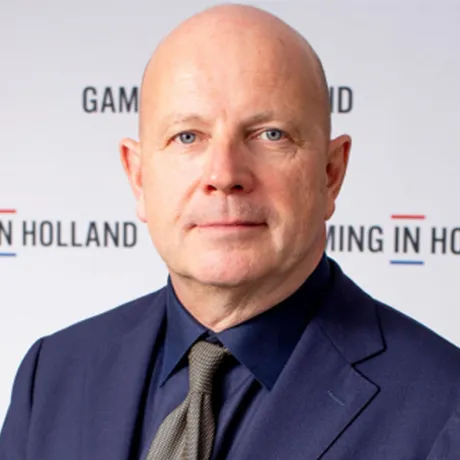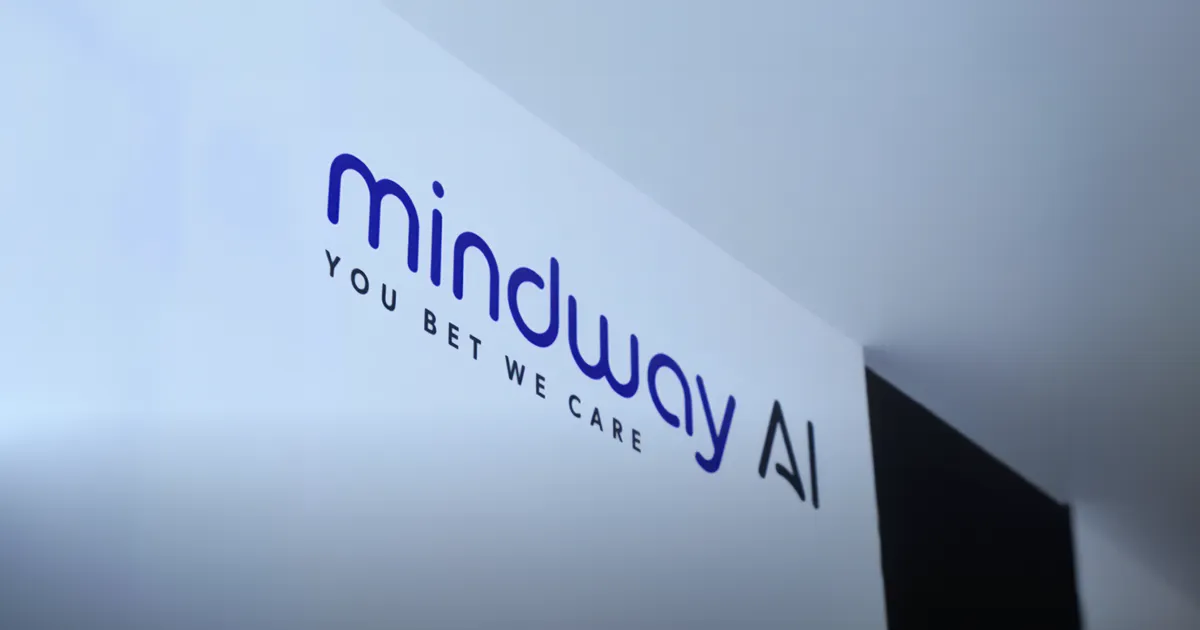Exclusive interview with Mindway AI, Gambling prevention tech giant
Mindway AI was established in 2018 as a spin-off from Aarhus University in Denmark. Here, Professor Kim Mouridsen recognized the potential of integrating neuroscience insights with AI technology to enhance player protection, transforming over a decade of research into safer gambling solutions.
Today, Mindway AI is a rapidly expanding software company that operates its science-driven solutions in over 37 countries, impacting more than 7.7 million active players globally each month. The Danish sports betting media group, Better Collective, holds a majority stake in Mindway AI.
Gambling Club exclusively spoke to Mindway AI CEO Rasmus Kjaergaard (RK), and Willem van Oort (WVO) member of the board of directors about the company’s services and its outlook on the future of player protection.
Could we ask you to introduce your company briefly for our customers that are not aware of Mindway as one of the world’s biggest Responsible Gaming partners for the largest iGaming brands?
RK: Yes, so to put it simply, we detect at-risk or problem gamblers using a combination of neuroscience, AI and human expert assessments from psychologists or from lived-experience former problem gamblers. Our solutions GameScanner and Gamalyze lead to more sustainable gambling patterns, less churn due to severe Problem Gambling (PG) cases, and better allocation of Responsible Gaming (RG) employee resources at gambling operators. By leveraging this technology, we empower both gambling operators and individuals to make informed decisions and take proactive measures to ensure responsible gambling. We believe that early detection of the individual player’s gambling behaviour combined with appropriate intervention steps will decrease the probability of players developing gambling addictions.
We are indeed a global company, our solutions are live in 4 different continents and more than 61 jurisdictions including UK, Denmark, Brazil, Germany, Canada, Australia, and US and translated into 14 different languages. GameScanner currently detects more than 7.7 million Active Players per month globally.
What do you feel that your biggest markets are? How did this become your biggest market?
RK: European markets although diverse and varying in size have been our biggest markets to date. This is largely due to the fact that safer gambling regulation across Europe has been and is continuing to tighten and operators need to excel beyond the minimum standard to meet the requirements.
Another key factor for Europe being a key focus for us is down to the fact that we are a Danish company. Mindway AI is developed out of Aarhus University and founded on 10+ years of research in neuroscience, neuroimaging, and problem gambling. So naturally, we expanded beyond our geographical beginnings.
In saying that, we are seeing more and more activity and interest building from outside of Europe and since we are live in so many jurisdictions already, we are actively monitoring trends in the gambling industry across the entire globe.
WVO: I would like to highlight the Dutch market in particular. The Netherlands are not necessarily Mindway AI’s biggest market, but the regulation of the Dutch market ran more or less parallel with Mindway AI’s initial growth and expansion.
Perhaps not coincidentally, Mindway AI’s tools and solutions fit almost perfectly with the Dutch responsible gaming and duty of care regulations. Other markets, in turn, have followed – at least to some extent – the Dutch example. Here, I am specifically referring to Germany, which is also a market in which the kind of tools that Mindway AI provides would shine.

Mindway AI is developed out of Aarhus University and founded on 10+ years of research in neuroscience, neuroimaging, and problem gambling.
Since you are present in so many geographies, how are you seeing the gambling industry evolving globally? (Regulations, Responsible gaming, safer gambling environment,…)
RK: In January, Mindway AI hosted the “Predictions in Responsible Gambling for 2024” webinar. Attendees had the opportunity to actively participate by submitting their own predictions for the year ahead and these predictions were discussed collectively by the panel, fostering a dynamic and collaborative exchange of ideas. Some of the biggest trends we discussed with no surprise centered around increasingly stricter regulations, ranging from bonusing, deposit limits, advertising and more. Specifically, we see more and more demands to keep gambling marketing away from minors given the digital age we live in. AI as a buzz word is of course everywhere, but actually the application of AI in relation to responsible gambling is and will continue to be a game changer. ESG is a huge focus not just for the gambling industry but in so many sectors to build more sustainable and forward-thinking companies of the future. Taking into account ESG, player sustainability and regulatory compliance, means that player protection has risen up the list of priorities for many operators.
Mindway AI’s virtual psychologist approach combines human psychological assessment with AI technology to pinpoint at-risk and problem gamblers based on their individual behavior. Therefore, we are continuously updating our solutions in cooperation with neuroscientists, gambling experts and psychologists specializing in gambling addiction. This approach adds a human touch to the complex AI software (so AI doesn’t go rogue) which is not seen elsewhere in the industry. I believe we are only beginning to see and grasp the causes for good that AI can assist with.
WVO: Regulators are increasingly inclined to set hard limits regarding player behavior. Deposit limits are an obvious example. At the same time, regulators are also struggling with making such limits meaningful and relevant. Losing a certain amount of money or spending a certain amount of time may be harmless to one player and quite harmful to another. And what if a player avoids hitting these limits by switching to another operator? Moreover, setting such limits can create a risk of an obstacle for AI models to work 100 % efficiently in detecting gambling behavior.
Although there are significant technical and privacy hurdles to overcome, we may end up with cross-operator behavior monitoring. I could see this being the future of responsible gaming in evolved markets.
Although there are significant technical and privacy hurdles to overcome, we may end up with cross-operator behavior monitoring. I could see this being the future of responsible gaming in evolved markets.

As your approach is unique since the Mindway team is so multi-faceted as you advertise it with AI with a human touch. What is the role of psychologists and how do they contribute since we feel it’s a big data story when processing and analysing information?
RK: We have assembled a highly experienced panel of gambling addiction experts, researchers, and psychologists to meticulously analyze several thousand player gambling patterns. Our experts in the field have experience ranging from research experience in the treatment of problem gambling to psychologists, psychotherapists and counsellors. The expert assessments are used for training, building and continuous updates of GameScanner’s algorithms.
The solution acts as ‘a virtual psychologist’ with AI-software based on real human psychologist expert’s assessments, thus providing automated psychologists’ assessments. GameScanner monitors and detects at-risk and problem gambling behavior 24/7 for operators, enabling them to reach out, on a tailored, individualized basis to at-risk players at a very early stage. We took the initiative, as the first RG provider globally, to ask GLI to test and validate the effectiveness and accuracy of GameScanner. GLI concluded that in at least 87% of cases GameScanner identifies the same at-risk players as human psychologist experts.
What do you think are the main indicators of people losing control while gambling?
RK: There is no one single indication that can point to problem gambling but rather a combination of factors and most attribute to a larger underlying issue whether it is financial, emotional or mental. For example, a player could deposit high amounts which would be out of the norm or considered risky for a player with an average salary and disposable income but would be typical for a VIP. That is why it is important to take multiple factors into account to make a more informed assessment. Some examples of these markers are nightly play, cancelled withdrawals, number of days played, etc.
Through observing real experts as they meticulously assess every aspect of players’ gambling patterns, GameScanner’s algorithm learns to weigh different indicators of both normal and addictive behavior. The algorithm furthermore monitors and profiles players fully automatically around the clock while continuing to learn and refine itself. In addition to this, we can now offer better support for operators when evaluating a person’s behaviour across multiple accounts. This gives a much more complete picture of the person’s behaviour and therefore better player protection and makes it easier for our clients to comply with regulations.
In Belgium we are aware that some companies are building their own responsible gaming tools. What’s your opinion on casinos that try to build their tools using the data that they possess?
RK: In-house solutions for gambling player tracking and detection present several subtle drawbacks which are not always visible at the beginning. Firstly, they often lack the sophistication and breadth of data analytics compared to specialized external systems, limiting their ability to detect nuanced patterns of problematic behavior. Additionally, such solutions may suffer from inherent biases or blind spots, as they operate within the confines of a single organization’s perspective and data sets. Moreover, maintaining and updating in-house systems can prove costly and resource-intensive, potentially diverting attention and resources away from core business functions. Often it can be the case that other more commercial projects take up most of the focus and developer resources. One huge challenge for in-house is keeping up the pace to changes in regulations particularly when it comes to operators who are active across a broad range of markets.
By leveraging our specialized expertise, operators can access the latest technology, expert human insights and data analytics tools specifically designed for the complex task of identifying and monitoring player behavior. Our solutions provide a more comprehensive and up-to-date approach, incorporating advanced algorithms and machine learning models combined with human psychologists’ assessments that enhance accuracy in detecting the full picture of each and every individual player’s activity. This was referred to recently by Jez White, Director of Player Protection Systems, Entain during a case study presentation at ICE London saying “Mindway blew our internal model out the water”.
In conclusion, adopting a hybrid approach that combines both in-house and external player protection solutions can offer a balanced strategy for mitigating risks. While in-house operators may be hesitant to discard their existing infrastructure, integrating external solutions can enhance their capabilities without necessitating a complete overhaul. Another advantage is that GameScanner can already provide a single customer view, which is of particular importance in the Belgian market with the requirement of customers needing to open individual accounts for each vertical played with the same operator.
By leveraging a combined approach, operators can maximize effectiveness in safeguarding players while optimizing their existing investments, ensuring a comprehensive and adaptable framework for responsible gambling practices.
WVO: Just to add to Rasmus’s points, I think it can be valuable to work with an independent party that already has received wide recognition in its field. Mindway AI has received multiple industry awards for providing a valuable and effective product. And, of course, it is the independent, scientific element that makes Mindway AI stand out from the competition.
What makes Gamalyze, one of your most renowned products, so revolutionary?
RK: Gamalyze is an innovative way of reinventing self-tests as a card game drawing on insights from neuroscience analysing each player’s decisions while they play. From this a report is generated with actionable feedback on the player’s strategy and sensitivity to rewards and losses. Last October, the National Council on Problem Gambling (NCPG) and Mindway AI proudly announced our strategic partnership. This partnership saw the integration of Gamalyze solution into NCPG’s flagship responsible gambling website, ResponsiblePlay.org. This marked the first RG tool to be deployed on a federal nationwide level in the US.
Over recent years we have ran awareness initiatives featuring Gamalyze for Safer Gambling Week and Problem Gambling Awareness Month with partner organizations including Casino Guru, the German Sports Betting Association (DSWV) and most recently CasinoReviews.net and Ecogra.
WVO: In the Netherlands, Gamalyze has also been adopted by Loket Kansspel, the national gambling helpline, and Holland Casino.
But apart from its wide adoption, I think it is also important to stress that Gamalyze has been built on a solid scientific foundation, and that the tool analyzes playing styles and playing behavior when the player is actually playing. In that sense, it does quite a bit more than analyzing filled-in questionnaires.
Where do you believe that Mindway should be in 5 years?
RK: We believe that early detection of the individual player’s gambling behaviour combined with appropriate intervention steps, will decrease the probability of players developing gambling addictions. We’re continuously updating our solutions in cooperation with neuroscientists and experts specializing in gambling addiction adding the human element to the complex AI software, which is not seen elsewhere in the industry. In the past year we have more than doubled our tech team in our headquarters in Aarhus, Denmark and are proud winners of 19 industry awards to date. We have multiple R&D projects in the works and constantly growing our network of partners and markets we operate in to have the biggest reach and impact to create a safer and more sustainable gambling industry. In five year’s time we expect to have moved into additional regulated markets with more and more industry operators to enhance player protection which reflects the trends, technology and needs of society.
WVO: In five years, Mindway AI should be recognized as a leading global compliance provider servicing world-class operators. Naturally, Mindway AI’s product portfolio should be refined to reflect the latest neuroscientific insights and AI developments.
Fortunately, Mindway AI is part of the Better Collective group of companies. This not only provides Mindway AI with the necessary financial and commercial clout to keep expanding its product portfolio, but it also provides the company with a special position in the market, close to the player.
Talking about the Belgian market, do you have plans to come to the Belgian market?
RK: We are already live in Belgium with GameScanner for Entain. However, we would love to add Gamalyze in Belgium to our “world map” as soon as possible depending on if an operator or another gambling industry stakeholder would move into a conversation about adapting and deploying the solution. Gamalyze is already translated into 14 different languages, and is prepared for more languages, so it would be easy to adapt to the Belgian market too.
WVO: Even so, Belgium is a market in which we see opportunities for expansion. Looking at international trends, as well as recent announcements by Belgium’s regulator, we foresee that more will be expected from licensed operators in the area of responsible gambling. Adequate levels of player protection are necessary to keep markets sustainable. Of course, this is exactly where Mindway AI can help.
We appreciate your time gentlemen. We’re looking forward to spotting you guys in the belgian market soon.


